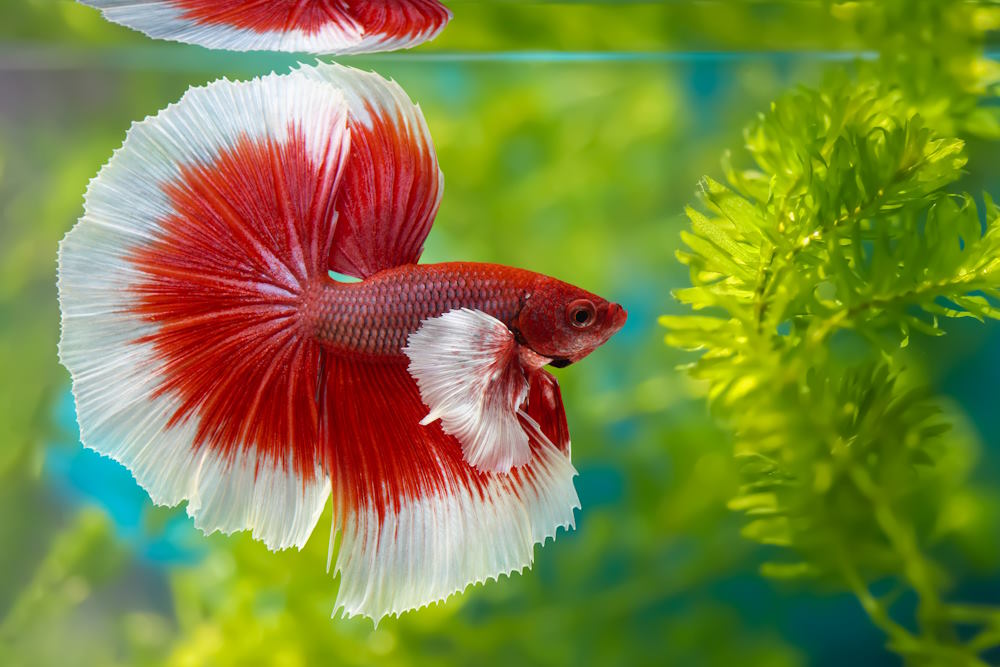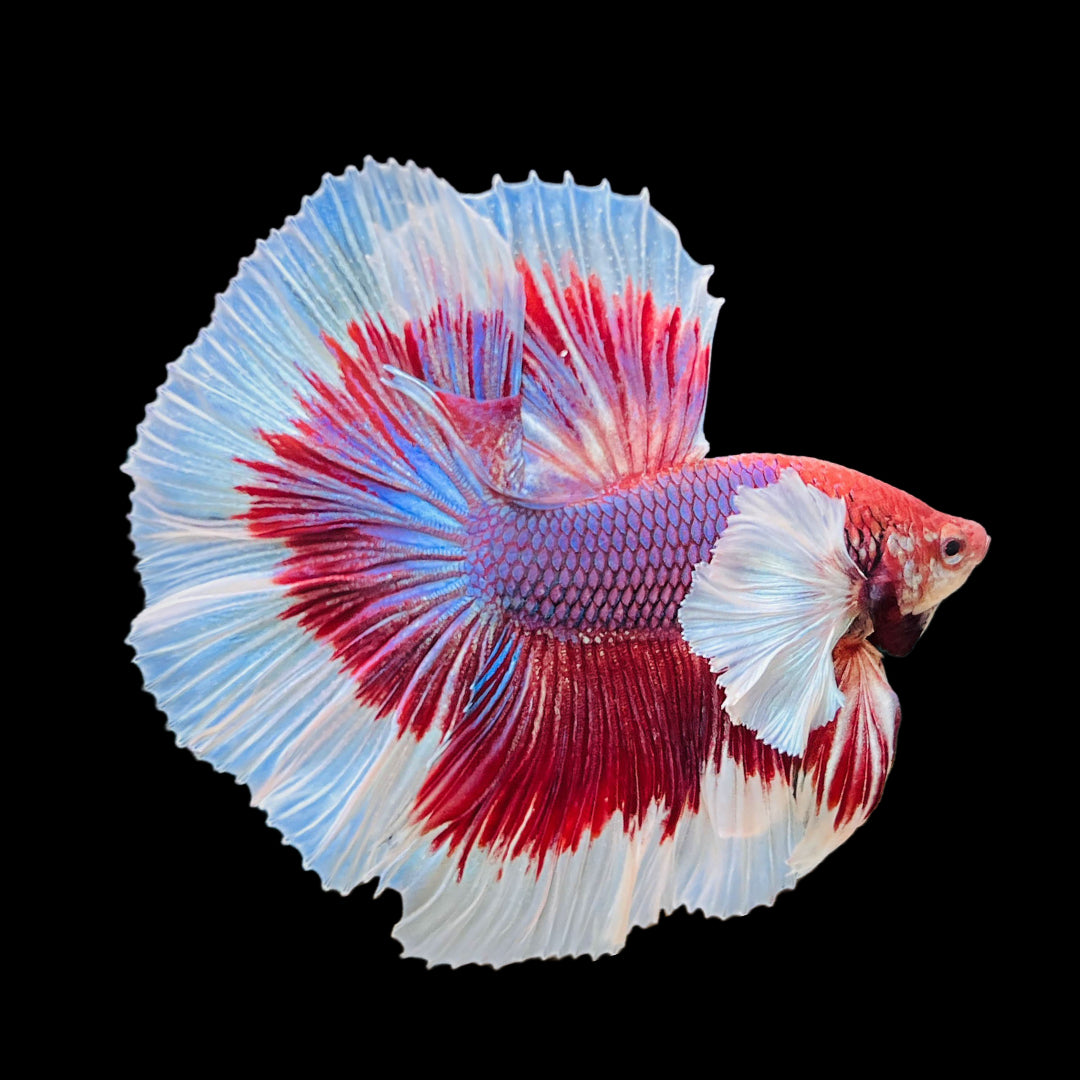Betta Fish Lifespan: How to Ensure Your Betta Lives Longer
The Ultimate Overview to Betta Fish Treatment: Vital Tips for Preserving a Healthy and Flourishing Aquarium Setting
Reliable Betta fish treatment requires a detailed understanding of their special environmental and physiological needs. Developing an appropriate fish tank begins with selecting the right storage tank dimension and making certain optimal water conditions, which are essential for the wellness and well-being of your Betta. Furthermore, comprehending appropriate feeding techniques and developing a helpful habitat can substantially affect your fish's vitality and behavior. As you take into consideration these fundamental elements, it comes to be clear that preserving a growing aquarium environment needs focus to detail and recurring dedication. What details techniques will you execute to improve your Betta's quality of life?
Choosing the Right Tank
Selecting the proper storage tank for your Betta fish is vital to guaranteeing its health and wellness. Bettas prosper in atmospheres that resemble their all-natural environments, which usually contain calmness, warm waters. A storage tank dimension of a minimum of five gallons is recommended to give sufficient swimming space, as smaller containers can cause stress and anxiety and health and wellness problems for these vivid fish.
When selecting a storage tank, consider the storage tank's shape and filtering system. A rectangle-shaped container is better to a dish, as it provides much more area for oxygen exchange. Additionally, a trustworthy filtering system is necessary to maintain water high quality and reduce the frequency of water changes (betta fish). However, it is necessary to select a filter with a gentle flow, as Bettas are not strong swimmers and may struggle against strong currents.
Temperature guideline is an additional vital element; Bettas choose water temperatures in between 76 ° F and 82 ° F. Buying a good heating unit will certainly guarantee that the water continues to be within this range, promoting a healthy and energetic way of living for your Betta. Supplying appropriate container decors and hiding areas will assist decrease stress and motivate all-natural actions, further enhancing your Betta's wellness.
Maintaining Water Quality
Keeping optimal water high quality is necessary for the wellness and longevity of Betta fish. This requires routine monitoring of different criteria, including temperature level, pH, ammonia, nitrite, and nitrate degrees.
The pH degree must ideally fall in between 6.5 and 7.5. Routine screening utilizing a trusted water testing package can aid make certain these criteria remain within the suitable varieties. Ammonia and nitrite levels must always be at 0 ppm, as also low concentrations can be toxic to Betta fish. Nitrate levels need to be kept under 20 ppm to stop lasting health concerns.
Routine water modifications are important to maintaining water quality. It is recommended to change 25-50% of the tank water weekly, depending upon the container size and stocking degrees. Making use of a high-quality water conditioner can assist eliminate dangerous chemicals from faucet water, ensuring a safe environment. Furthermore, integrating a robust filtration system can aid in preserving water clarity and top quality, supplying a healthier environment for your Betta fish.
Ideal Feeding Practices
Providing a well balanced diet is important for the health and wellness and lively pigmentation of Betta fish, as their nutritional demands play a significant duty in their total well-being. Betta fish are carnivorous by nature, needing a diet regimen high in healthy protein. A mix of high-grade pellets, icy or online foods such as bloodworms, brine shrimp, and daphnia i loved this can provide the crucial nutrients they require.
Feed your Betta fish 2 to 3 times a day, supplying just what they can eat within a couple of mins to stop overfeeding and maintain water top quality. Overfeeding can result in weight problems and health problems, including swim bladder illness. It is vital to check their dietary intake and adjust portion sizes appropriately.
Along with protein, a well balanced diet must include nutrients to promote optimum health and wellness. Consider supplementing their diet with top notch flakes or pellets especially formulated for Betta fish, as these often include needed additives.

Developing an Appropriate Habitat

Water quality is extremely important; preserve a temperature level in between 76 ° F and 82 ° F, and make certain the pH level ranges from 6 - betta fish.5 to 7.5. Routine water changes of 25-50% per week will certainly assist keep toxins away and make sure a secure environment
Incorporating plants and hiding spots is essential, as Betta fish are normally territorial and delight in having locations to explore and pull back. Live or silk plants, in addition to caves and ornaments, can develop a stimulating my link setting.

Routine Health Checkups
Performing routine health check-ups is important for making certain the health of Betta fish, as early detection of potential concerns can avoid severe health issue. These appointments need to include a thorough examination of the fish's physical problem, behavior, and environmental variables.
Begin by observing the Betta fish for any type of indicators of distress, such as lethargy, loss of hunger, or uncommon swimming patterns. Additionally, evaluate the fins and body for signs of staining, sores, or fin rot, which can suggest infections or parasites. Regularly checking the water quality in the fish tank is equally important; specifications such as pH, ammonia, nitrite, and nitrate levels should be kept within optimal varieties to prevent stress and disease.
Additionally, consider keeping a log of wellness observations and water high quality tests. This document can help with the identification of patterns or repeating problems. If any type of problems are spotted throughout the check-up, it is necessary to get in touch with a veterinarian experienced in water pets. Timely treatment can make a considerable distinction in the recovery of your Betta fish, making certain a lengthy and healthy and balanced life in a well-kept aquarium environment.
Final Thought
In verdict, successful Betta fish treatment pivots on creating and keeping an optimal fish tank atmosphere. By complying with these guidelines, aquarists can advertise the health and vibrancy of Betta fish, inevitably resulting in a growing water environment.